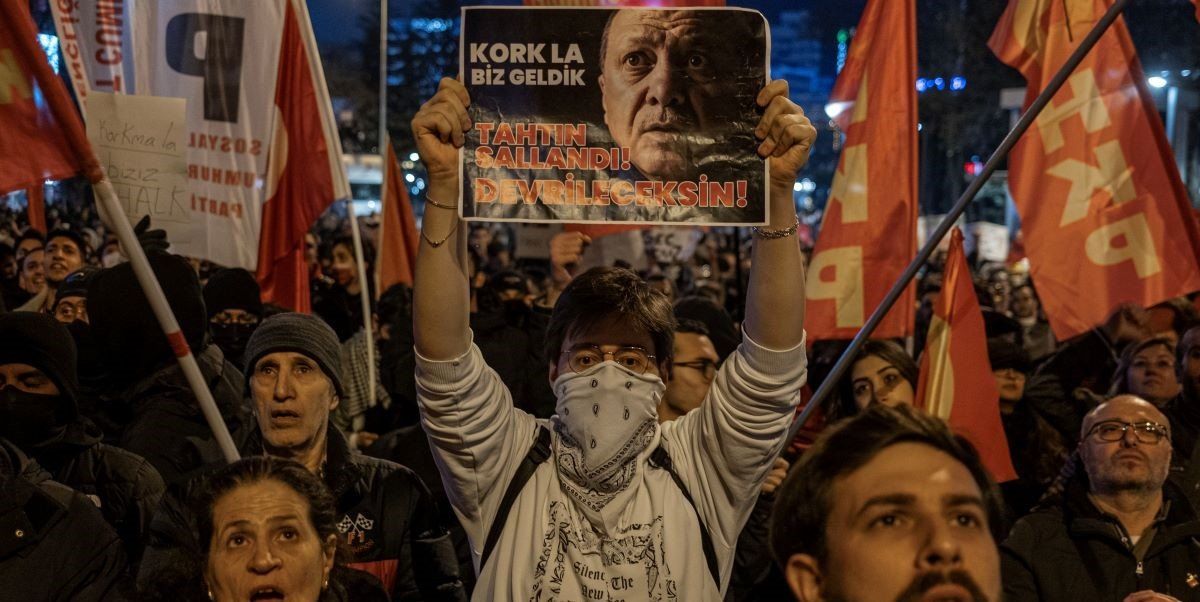When opposition leader
Ekrem Imamoglu was first elected mayor of Istanbul in 2019, Turkey’s president,
Recep Tayyip Erdogan, claimed his victory was a fraud and ordered a rerun. Imamoglu then won the do-over by a wider margin, and his party, Turkey’s main opposition, the CHP, has since won in nearly every major Turkish city.
Erdogan is now back foranother round of political hardball. Imamoglu was formally arrested on corruption allegations on Sunday. If convicted, he will not be allowed to run for president. Protests have erupted around the country.
The CHP, which claims the arrest is a politically motivated move to spare Erdogan from his most popular critic, formally named Imamoglu as its presidential candidate on Sunday. The party has also called for a boycott of media companies that don’t air coverage of the protests, and lists of companies with close ties to the government have been spreading via WhatsApp groups.
Erdogan, in power now for more than two decades, will probably face down this challenge. Opposition-friendly journalists have been
detained, and Turkey’s Interior Ministry announced on Monday that
1,133 protesters were arrested between March 19 and 23. Authorities have also moved to knock opposition figures off social media. Erdogan’s dominance of the state bureaucracy, police, military, the country’s judiciary, and its largest media companies will probably help him tamp down any larger groundswell of support for Imamoglu around the country.
